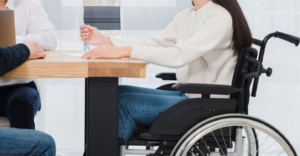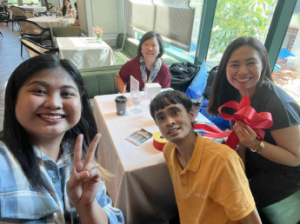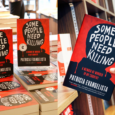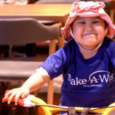Securing employment these days is as challenging as it sounds, and for Persons with Disability (PWDs), the chances of getting gainful employment are even harder. In a time when people are clamoring for inclusivity, the reality is that PWDs still continue to face barriers to securing meaningful work opportunities. This realization ultimately became the inspiration behind Unilab Foundation’s Project Inclusion program.
Unilab saw the crucial need to be a catalyst in breaking down barriers for PWDs. At the heart of this advocacy is the Project Inclusion Network (PIN), a program that incubated within Unilab Foundation, but has now grown into a powerful force for change and inclusivity in the corporate arena.

Photo: Freepik
PIN Executive Director Grant Javier shared his journey as a father to a Person with Disability (PWD). Javier’s son, who was diagnosed with autism, has been a driving force behind his passion for inclusivity and accessibility for PWDs in the workplace. Javier’s dedication to this cause was discovered by a colleague who worked for the Unilab Foundation in 2012. Mr. Javier was invited to spearhead a project to support equality and fair job opportunities for PWDs.
PIN’s initiatives focus on building strong business cases for hiring people with disabilities, intending to destigmatize the narrative of companies hiring PWDs as an act of charity. While creating an inclusive and compassionate environment is commendable, PIN’s vision is for companies to recognize PWDs as individuals who are just as capable as their able-bodied counterparts.
Since its inception in 2012, PIN has successfully advocated for the employment of over 100 PWDs across various companies, with Unilab as one of the first organizations to employ PWDs through the program. A notable achievement for PIN was the partnership with a major chain of drugstores in the country, which hired over 24 PWD employees.
Furthermore, PIN’s commitment to diversity extends beyond neurodevelopmental disabilities. In 2017, they opened doors to hiring PWDs with physical disabilities such as blindness, deafness, and orthopedic disabilities. In 2018, PIN launched the “May 1 Percent Ka Ba?” campaign in partnership with the government in alignment with RA 10524, an act that stipulates that 1% should be reserved for employment of PWDs in government agencies.
Recognizing that not all PWDs can secure direct employment, PIN has also created opportunities for artists with disabilities. These individuals are commissioned for artworks and murals, and their art is showcased in exhibits, allowing art enthusiasts to engage with the artists and purchase their work. Through these multifaceted initiatives, the Project Inclusion Network continues to make a significant impact in the lives of PWDs and promotes a more inclusive and empathetic society.
PWD employees Gian Mendoza and Randy Motoomull shared their journey in thriving under the programs provided to them by Project Inclusion Network.

Gian Mendoza (far right) with his peers during an Earth Day event.
Mendoza recounts the challenges he faced in finding employment due to his autism, despite being a board passer for Mechanical Engineering and qualifying for jobs related to his degree. “Madami po nag-interview sa akin tapos pag nalalaman nila yung condition ko, sinasabing tatawagan ako pero hindi na sila tumatawag,” he narrates. (“I went through a lot of job interviews but upon learning of my condition, they ended up not hiring me despite their promise to call me back after the initial interview.”)
Thanks to the aid provided to him by Project Inclusion Network, he was able to become a valued employee in an animal nutrition and healthcare company’s crediting department.
Project Inclusion’s very own Finance Admin Assistant Randy Motoomull, who is also on the autism spectrum, says working for the organization helped him hone his skillset. His role in the company involves handling payment requests, managing supplier relationships, and handling important documents.
“Lumaki ‘yung confidence ko kasi binigyan ako ng mas maraming responsibilidad. Madami akong nakilala at ang pinakaimportante, mas marami akong mailalagay sa resume ko para ma-showcase sa ibang mga kumpanya in the future na hindi lang ang mga taong walang kapansanan ang kayang gumawa ng trabaho. Pwede kami ma-train at maturuan,” says Motoomull.

Randy (center) joining his peers for a photo-op.
(“I gained self-confidence because I was given more responsibilities. I have met many [people], and more importantly, I was able to include more [skills] in my resume so I can showcase to other companies in the future that able-bodied people are not the only ones who can deliver tasks. Even those with disabilities can be trained and taught.”)
PIN’s dedication to fostering inclusivity is exemplified through empowering individuals like Gian and Randy, who have overcome challenges and succeeded under the wings of the organization. Their stories echo the essence of the organization’s vision—a world where individuals with disabilities are not just employed but are also valued, who enjoy equal opportunities, and who are celebrated for their unique talents and contributions.




